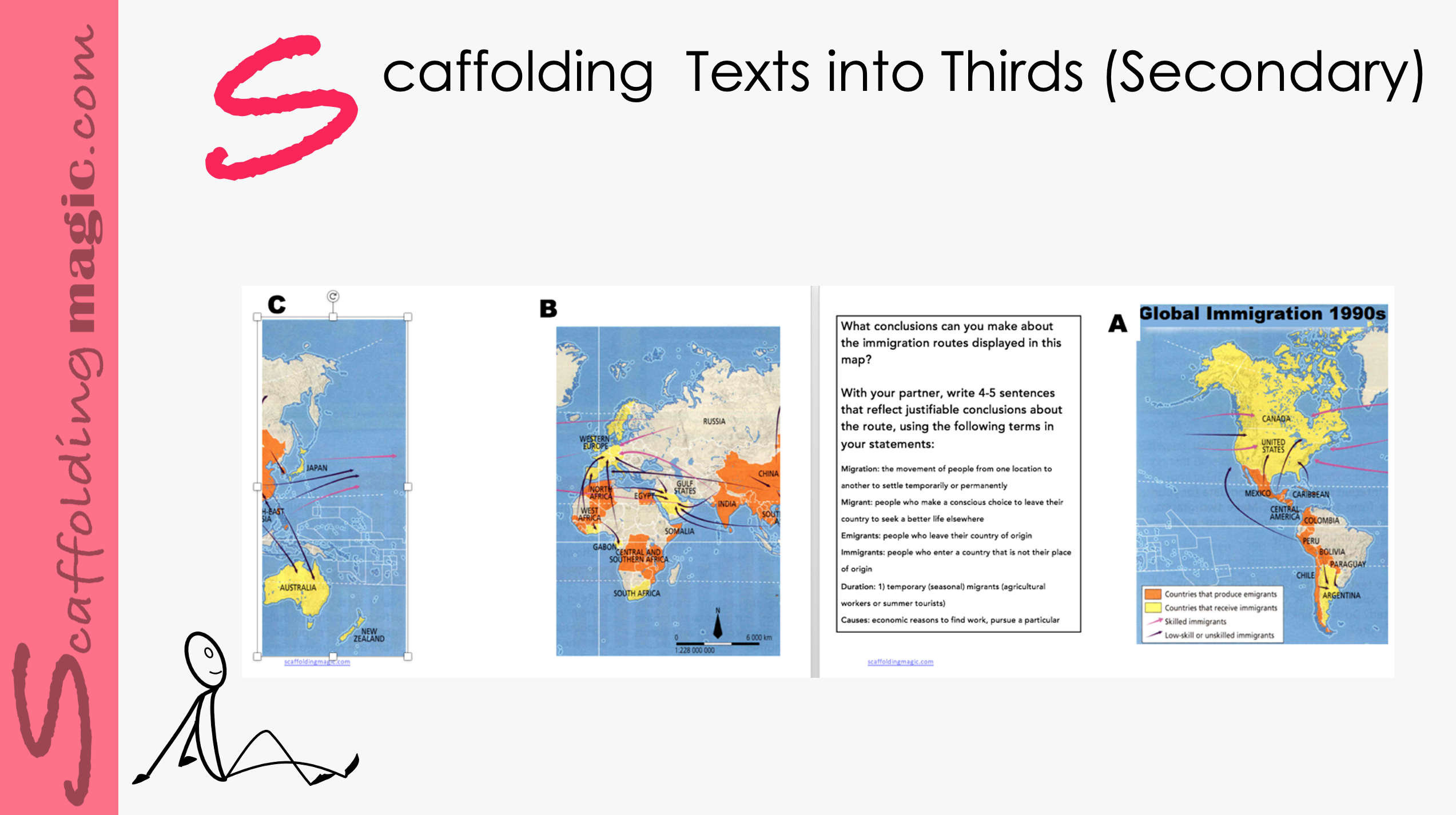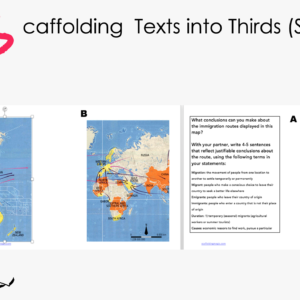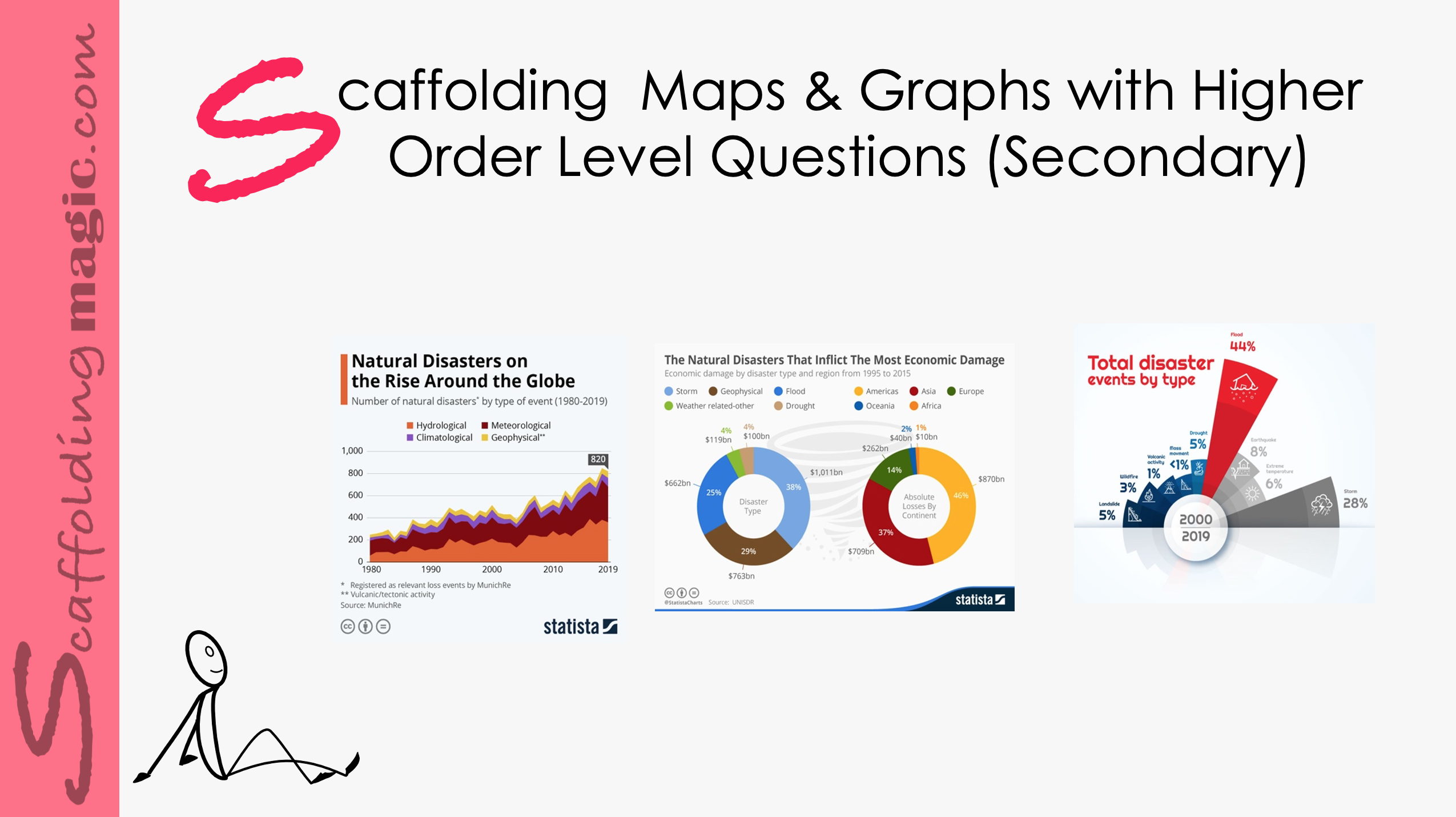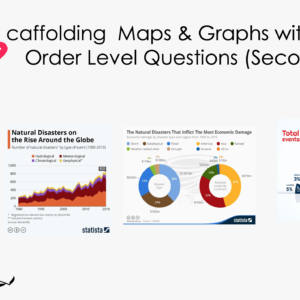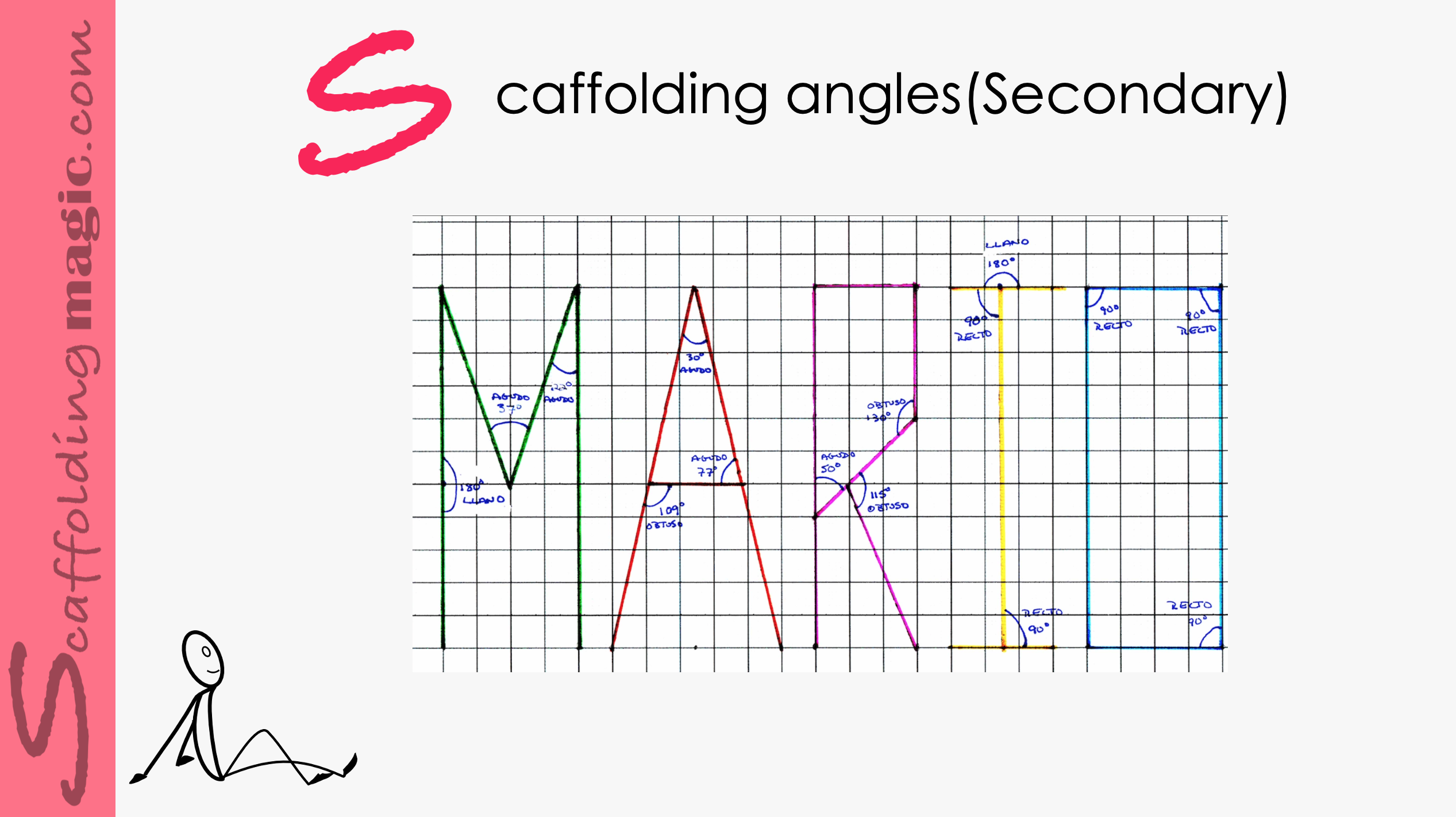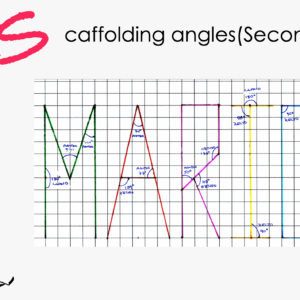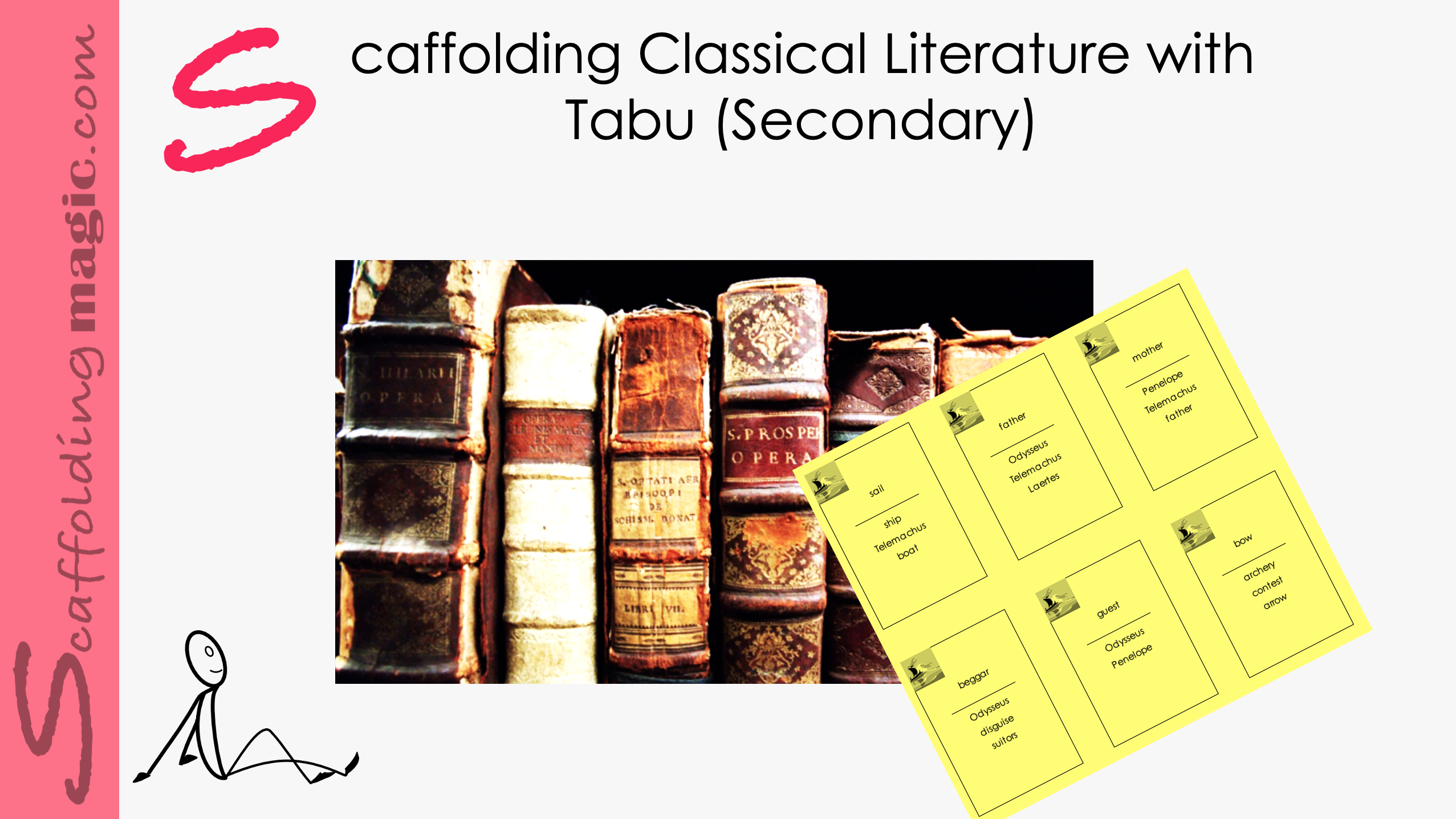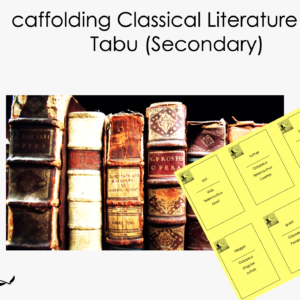March 25th is the International Day of Remembrance of the Victims of Slavery and the Transatlantic Slave Trade. As educators, it’s vital for us to pass on bits of history so that even our youngest learners can internalise the injustice of what happened, in order to create more hope for the human population of today. Most history texts are written in depersonalised structures (passive tense with no recognisible narrator’s voice), and so are divorced from a tangible context that we usually need to connect to the information. Let’s add humanity and feeling to history so that our students see the connection to what happened in the past, their reality, and what they can do to make positive changes in the future.
Scaffolding Human Rights (Secondary)
$5.00
March 25th is the International Day of Remembrance of the Victims of Slavery and the Transatlantic Slave Trade. As educators, it’s vital for us to pass on bits of history so that even our youngest learners can internalise the injustice of what happened, in order to create more hope for the human population of today. Most history texts are written in depersonalised structures (passive tense with no recognisable narrator’s voice), and so are divorced from a tangible context that we usually need to connect to the information. Let’s add humanity and feeling to history so that our students see the connection to what happened in the past, their reality, and what they can do to make positive changes in the future.
Related products
- Quick View
-
Secondary ScaffoldsQuick View
Scaffolding Maps & Graphs with Higher-Order Level Questions (Secondary)
$20.00 Add to cartRated 0 out of 5 - Quick View
- Quick View
Scaffolding Texts in Thirds (Secondary)
This scaffold presents one technique you can use to combat this human tendency of laziness – of relying on memory instead of working actively to further knowledge. We use here a social science lesson on global migration, and you’ll see how you can adapt it to any lesson you’re about to begin.
This scaffold presents one technique you can use to combat this human tendency of laziness – of relying on memory instead of working actively to further knowledge. We use here a social science lesson on global migration, and you’ll see how you can adapt it to any lesson you’re about to begin.
janice added this to see
Scaffolding Maps & Graphs with Higher-Order Level Questions (Secondary)
Higher-order level questions – those that elicit deeper thinking – help students to stretch their thinking and engage their curiosity, their reasoning ability, their creativity, and independence. These questions encourage students to open their minds, they offer opportunities to produce original thinking. A well-structured question sparks perspectives that might not have at first occurred to us; they encourage us to look at the issue from different perspectives. Higher-order level questions inspire fresh and sometimes even startling insights and ideas, they open roads for wider perspectives of the issue, and enable teachers and students to work together in constructing understanding. If we use effective questioning skills in the educational environment, we help our students to be more effective thinkers now and in the future.*
Higher-order level questions – those that elicit deeper thinking – help students to stretch their thinking and engage their curiosity, their reasoning ability, their creativity, and independence. These questions encourage students to open their minds, they offer opportunities to produce original thinking. A well-structured question sparks perspectives that might not have at first occurred to us; they encourage us to look at the issue from different perspectives. Higher-order level questions inspire fresh and sometimes even startling insights and ideas, they open roads for wider perspectives of the issue, and enable teachers and students to work together in constructing understanding. If we use effective questioning skills in the educational environment, we help our students to be more effective thinkers now and in the future.*
Scaffolding Angles (Secondary)
If you have students who are more linguistic, more in touch with Humanities, more comfortable with words or music or the arts, it’s possible that they haven’t found a way to embrace numbers or see their relance in their lives. For a maths teacher or students who are passionate about numbers, this seems unfathomable. Numbers are glorious! Numbers determine practically all of our decisions (probability, fractions, percentages, etc.). How can you feel so indifferent to educating yourself about such a fascinating and useful branch of study?
Scaffolding Classical Literature with Tabu
Many ESL teachers will questions the importance of teaching and using classic literature in their classes. We probably all agree that it is not easy to teach in its authentic form as it demands a high level of language proficiency and maturity for any student, and especially students those whose home language is different from that of the class text.
Nevertheless, through varied techniques, the reading of authentic classic literature is an incredibly enriching experience (although your students may not appreciate or admit this until years later!). Gamify the learning and you have students begging for more!!!
Many ESL teachers will questions the importance of teaching and using classic literature in their classes. We probably all agree that it is not easy to teach in its authentic form as it demands a high level of language proficiency and maturity for any student, and especially students those whose home language is different from that of the class text.
Nevertheless, through varied techniques, the reading of authentic classic literature is an incredibly enriching experience (although your students may not appreciate or admit this until years later!). Gamify the learning and you have students begging for more!!!


